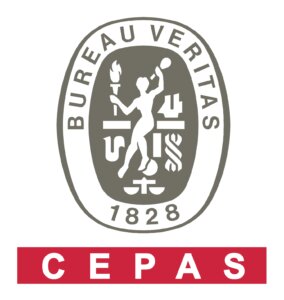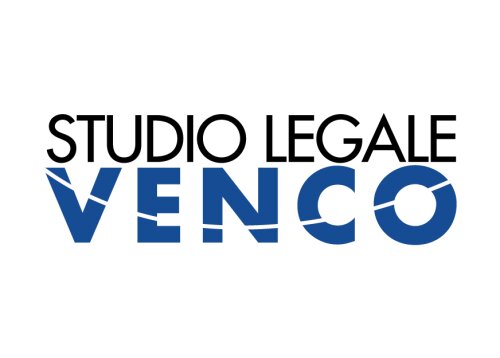Best Collaborative Law Lawyers in Italy
Share your needs with us, get contacted by law firms.
Free. Takes 2 min.
Free Guide to Hiring a Family Lawyer
Or refine your search by selecting a city:
List of the best lawyers in Italy
About Collaborative Law in Italy
Collaborative Law in Italy is a progressive approach to resolving legal disputes, primarily in family law cases such as divorce and child custody. Instead of the traditional adversarial court process, Collaborative Law involves a voluntary, structured, and cooperative negotiation between the parties involved. This process includes the parties and their lawyers working together in a series of meetings to reach a mutually agreeable solution. The goal is to achieve a settlement while minimizing conflict and preserving a positive relationship between the parties.
Why You May Need a Lawyer
Engaging a lawyer trained in Collaborative Law can be crucial in several situations. These include divorces where there is a desire to avoid litigation, disputes over child custody that require a coordinated agreement, separation cases where amicable financial settlements are sought, and any family legal issue where maintaining a constructive relationship is beneficial. A lawyer can provide legal guidance, ensure the process adheres to legal standards, and assist in negotiating terms that protect your interests.
Local Laws Overview
Italian Collaborative Law is guided by principles that respect confidentiality, voluntary participation, and the clients' control over the outcomes. It aligns with certain provisions of family law under the Italian Civil Code but deviates in method and experience. The approach is founded on transparency and good faith and is supported by specific measures such as the disqualification clause, which prevents lawyers from representing their clients in court should the collaborative process fail.
Frequently Asked Questions
What is the main objective of Collaborative Law?
The primary goal is to resolve disputes amicably without going to court, allowing parties to focus on shared interests rather than past grievances, and is particularly beneficial in familial contexts.
What happens if the collaborative process fails?
If the process does not result in an agreement, the parties must seek new legal representation, as collaborative lawyers cannot represent their clients in subsequent litigation.
Is Collaborative Law only applicable to family law?
Although its predominant use is in family law, the principles of Collaborative Law can potentially be applied to other areas such as business disputes.
How are child custody arrangements handled?
The process involves both parties focusing on the best interests of the child, working toward a solution that supports the child's well-being with the assistance of child specialists if needed.
Can Collaborative Law save time and money?
Yes, it can be more time-efficient and cost-effective than court litigation, as it aims for swift resolutions and avoids prolonged court procedures.
How do I find a collaborative lawyer in Italy?
You can look for lawyers certified in Collaborative Law through professional associations or legal directories specific to this practice area.
What are the advantages of choosing Collaborative Law over traditional litigation?
Key benefits include reduced hostility, privacy in negotiations, tailor-made solutions, and the preservation of relationships, particularly significant when children are involved.
Do both parties need to agree to use Collaborative Law?
Yes, both parties must agree to and commit to the collaborative process for it to be effective.
What role do other professionals play in Collaborative Law?
Professionals such as financial advisors, child specialists, or psychologists may be involved to provide expertise and facilitate a well-rounded, informed agreement.
Is Collaborative Law recognized throughout Italy?
Collaborative Law is recognized and practiced in various regions of Italy, although its prevalence and reception may vary depending on local legal community acceptance.
Additional Resources
For further assistance, consider reaching out to the Italian Association of Collaborative Lawyers or local family law professional groups. These organizations often provide resources or can refer individuals to qualified collaborative lawyers. Governmental bodies like the Ministry of Justice may also offer relevant information regarding legal rights and obligations.
Next Steps
If you believe Collaborative Law is suitable for your situation, the next steps include researching and selecting a qualified lawyer specializing in collaborative processes. Schedule an initial consultation to discuss your needs, determine compatibility, and understand the costs and scope involved. To ensure a successful process, it's important to enter the negotiations with an open mind and a willingness to work towards a cooperative outcome.
Lawzana helps you find the best lawyers and law firms in Italy through a curated and pre-screened list of qualified legal professionals. Our platform offers rankings and detailed profiles of attorneys and law firms, allowing you to compare based on practice areas, including Collaborative Law, experience, and client feedback.
Each profile includes a description of the firm's areas of practice, client reviews, team members and partners, year of establishment, spoken languages, office locations, contact information, social media presence, and any published articles or resources. Most firms on our platform speak English and are experienced in both local and international legal matters.
Get a quote from top-rated law firms in Italy — quickly, securely, and without unnecessary hassle.
Disclaimer:
The information provided on this page is for general informational purposes only and does not constitute legal advice. While we strive to ensure the accuracy and relevance of the content, legal information may change over time, and interpretations of the law can vary. You should always consult with a qualified legal professional for advice specific to your situation.
We disclaim all liability for actions taken or not taken based on the content of this page. If you believe any information is incorrect or outdated, please contact us, and we will review and update it where appropriate.
Browse collaborative law law firms by city in Italy
Refine your search by selecting a city.

















